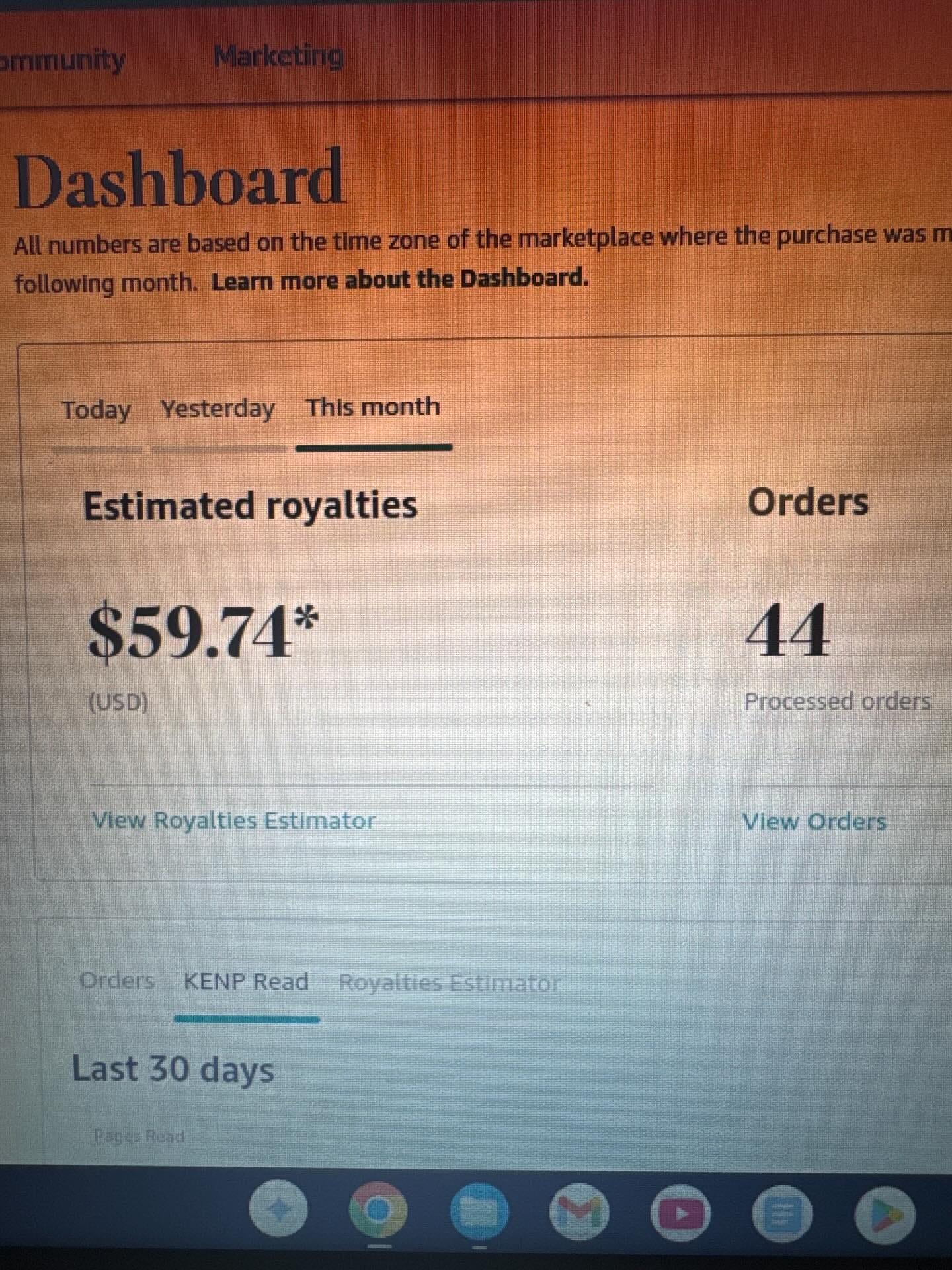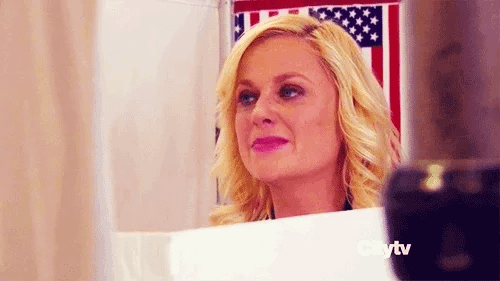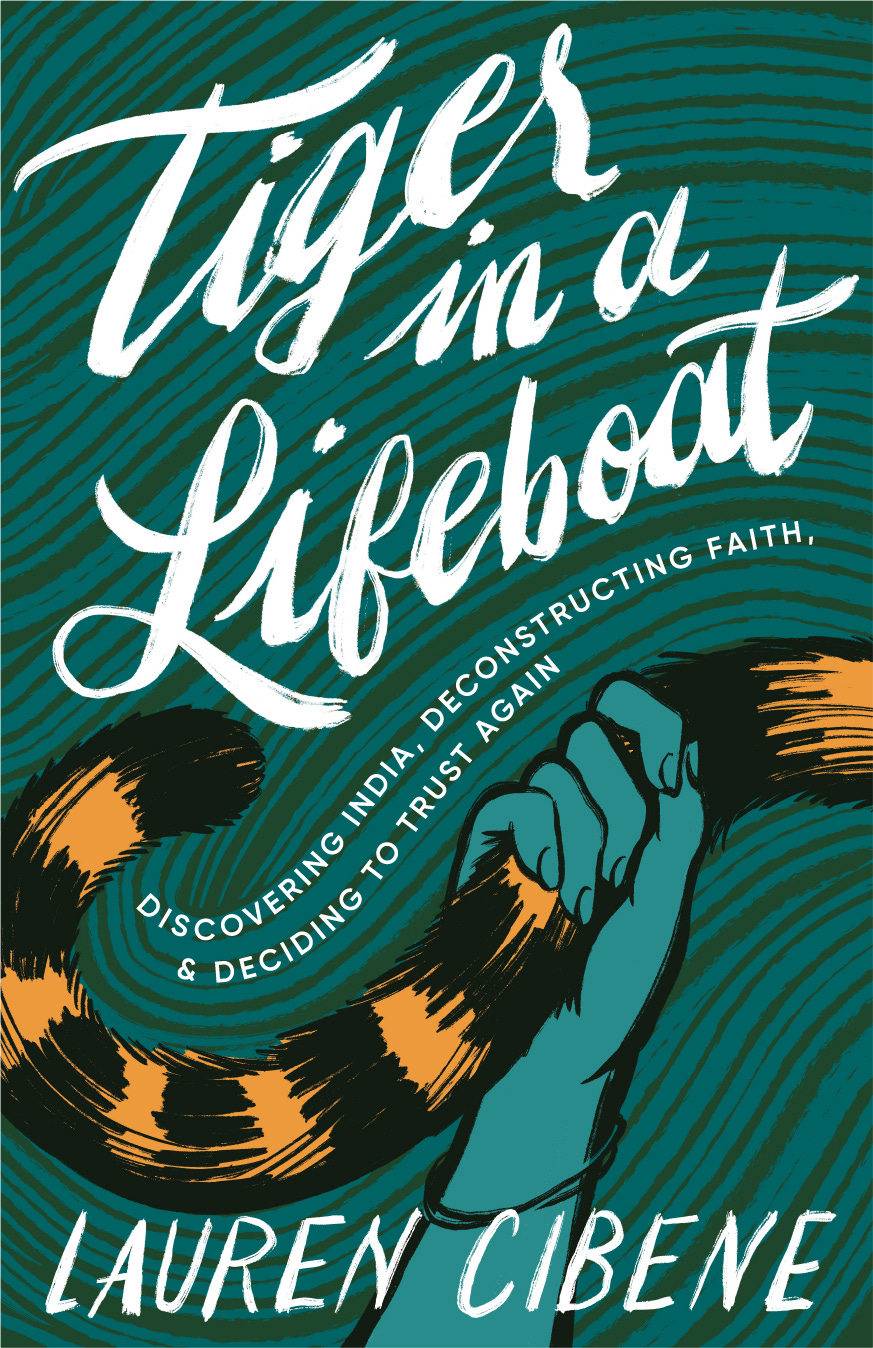Since signing with my publisher last August, I’ve been busy loading fuel into my debut memoir, and we’re downright hurtling towards its release date…which is (🥁🥁🥁):
🐯✨ Tuesday, May 6th, 2025 ✨🐯
It feels surreal and magical and terrifying to have a date I can finally share with you. Preorders will open sooner than that; I’ll share that date when I have it.
This past week, I’ve been contacting potential endorsers (every single one a person I admire greatly) and asking if they’d consider reading my book.
Every time someone said, “Yes, send it to me!” I felt like Leslie Knope, finally voting for herself.
My publisher,
, has been incredibly supportive throughout this entire process, helping to establish timelines, wrangle priorities, and facilitate clear communication between lots of different parties. Lake Drive is a hybrid publishing house, which means that our working relationship is more collaborative than in a traditional publishing relationship.I have something else exciting to show you. But I also have many aspiring authors in my audience, so I wanted to take a quick second to outline the differences between traditional, hybrid, and self-publishing models. Because they matter.
They matter to you as a writer, to your work, to your future readers, to our shared culture, and to the wider world.
They matter a lot.
Traditional publishers
To land a traditional publishing deal, an author first needs to be agented.
To land an agent, you need a strong book proposal and/or a complete manuscript, depending on your genre. Your agent then takes it to publishers on your behalf.
There are five major publishers (called the Big Five) that control approximately 80% of the publishing industry. Another way to say it: a measly five companies dictate and control and approve 80% of the stories that get told. A small number of incredibly powerful publishers makes for a fiercely competitive field between authors, and the projects with the most potential to make money win out.
Let’s say you’re exactly what one of the Big Five is looking for, and they make you an offer through your agent.
In a traditional publishing deal, a publisher will typically give an author an advance (maybe $5k if you’re a new/no-name author). This is paid out in installments between signing and publication.
Could you live off $5k, paid out in four 25% increments, over 1.5-3 years? Because that’s about how long it takes for a publisher to get a book released after signing an author. Sometimes it’s faster. Sometimes it’s slower.
The book’s done, it’s time to promote it! A sizable amount of the marketing work will fall to you as the author, and both publishers and agents look to sign authors who already have large followings on social media and/or in a relevant industry. Because why would they spend time and money marketing your book when you can simply hop on Instagram and talk to motivated prospective buyers? Now’s the time to stir those 100k followers into a froth so they’re ready to preorder your book. Do it! Be viral! Post multiple times a day! Make it good! Go!
It is worth saying: publishers have relationships with the big bookstores, airport booksellers, etc. as well as press outlets that make it much easier to get in front of prospective readers. This is a huge draw toward traditional publishers.
Once the book is released, an author won’t receive a single royalty check until the publisher recoups the author’s entire advance through book sales. This is called “earning out” your advance. In the example below, an author with a $5k advance would need to sell about 3,000 books (across formats) before they see even a single royalty dollar.
But let’s say your debut is a freak success! Everyone’s reading your book, and you earn out your advance in record time. Moving forward, you’ll get a royalty check once every six months. So, hopefully, you’re a budgeting master because you’re going to need to make that bi-annual check stretch.
Traditional publishing is prestigious but glacially slow. If it takes you:
1-3 years to write & revise your manuscript
6-12 months to find an agent
6-12 months for the agent to land you a deal
6-12 months for editing/revisions
6 months for production and marketing
…that could take about 6 years for your book to land on shelves.
This entire example, by the way, is wildly optimistic.
Self-publishing
On the opposite end of the spectrum is self-publishing. 100% of the work falls to the author, but 100% of the net profit stays with the author. Get that bag, baby.
In self-publishing, no suits control what does or does not get published. This cuts both ways. Any quack can get a book to market, but that same liberation is also available to undervalued voices who have something to say. They deserve to tell their story even if it doesn’t have great potential to line the pockets of publishing execs farting up their C-suites.
This importance cannot be overstated. Sharing stories is a fundamental human need, and stories are our oldest, most priceless heirloom.
Embarking on a self-pub project is quite literally starting a business, and self-pub authors should anticipate wearing (or making plans to outsource) all the hats that small business owners wear. This includes:
Project manager: You’ll need to monitor budgets and timelines closely to get your book to market.
Product designer: You must find and finance a cover designer, editor, audiobook narrator, and audio engineer (if applicable, although you should consider it: roughly 30% of book sales come from audiobooks) and manage them toward your release date.
You’ll also need to apply for copyright, register with the Library of Congress, and obtain an ISBN number and barcode for both the hardcover AND the paperback of your book.
Marketing and promotion: Get people excited about your book with a robust marketing plan (that you’ll need to create) and compelling assets (that you’ll also need to create) for press, social media, and email marketing.
Event coordinator: We’re talking book launch parties, podcast interviews, conference appearances, signings, networking events…the list goes on.
Purchasing and resource management: You’ll need to decide how to print your book and how much stock to purchase for your IRL inventory without turning your budget upside down.
It’s no cakewalk. And yet self-publishing tends to be viewed by the general public as less official than traditional publishing. That may be because self-publishing a book has never been so straightforward, thanks to the introduction of Amazon’s KDP tools in 2007. The year KDP was launched, self-pub books represented 6% of Amazon’s book catalog. Now, it is a staggering 92%.
90% of these self-pub books sell fewer than 100 copies, but the purchase of self-pub books represents over 30% of Amazon’s total book sales.
Self-pubs are making Bezos a pretty sizable chunk of change; between 30-65% of every dollar your books make goes into his pocket. He wants you to publish, that’s why the tools are so accessible. But within some of these tools are hidden handcuffs. Authors who self-publish their ebooks on Kindle Unlimited, for example, are required to hand over the rights to their ebook to Amazon. This means they can't sell ebooks anywhere else – not even on their own website.
In the words of , “Amazon only loves you for your body (of work).”
Self-pub authors like my friend
can expect to see these kinds of royalties (shared with her permission):
Again, self-pub authors do get to keep 100% of their net profit! But they often invest all of it right back into marketing and promoting the book.
(Side note: some of the best ways to support your favorite self-pub authors is to go around Amazon and buy hardcopies directly from them. Purchasing directly from authors enables them to retain up to 96% of each sale. If you're a fantasy fan, check out Haley’s beautiful book here.)
The other advantage of self-publishing is authors have total control over their timeline. They don’t need to wait years for their book to get to market; they get to decide when the material is ready.
That, more than anything else, is often the most appealing aspect of self-publishing for authors who believe in their work's potential.
Hybrid Publishing
A relatively new option, hybrid publishing bridges the gap between traditional publishing models and self-publishing options.
As I mentioned, my debut memoir is being published by a hybrid publishing house, Lake Drive Books. We are sharing the costs to get this book to market, and we will share the royalties once it’s released. I’m shouldering a great deal of the marketing efforts (as an author would be expected to do in the other two models anyway), while my publisher is shouldering the majority of the project management responsibilities.
David, the founder of Lake Drive Books, has extensive experience in the traditional publishing world AND in my genre, which is a huge asset. As a debut author, I simply don’t know what I don’t know. Having his expertise and network to tap into is well worth sharing my royalties.
Traditional publishers have caught on to the hybrid publishing movement and have rolled out similar programs. Be wary of these vanity publishing mills. They are not true hybrid publishers. They are pay-to-play programs that are the worst of both extremes. Authors can expect a more expensive version of self-publishing with all the content requirements (censoring) of a large publishing house.
They’ll dangle the carrot and tell authors they “have a chance” at getting picked up by the larger, more well-known parent publisher, which would allow them to tap into all the prime placement and perks of traditional publishing. Don’t fall for this.
Your work deserves to have a true ally that values its potential – not just your cash.
Overwhelmed?
Yeah, it’s hard not to be.
Self-publishing is appealing because it’s accessible, and you have the potential to make more money. But it also might feel a bit gross because a billionaire who doesn’t know or care about you is taking 30-65% of every dollar you make. You might have to make tricky licensing sacrifices to get on platforms like Kindle Unlimited. And the whole process is just a lot of freaking work.
The traditional publishing model is prestigious, but it’s slow, compensation is bleak, and the system skews towards the exploitative. Especially considering that authors are battling monopolies on the front end in the publishing industry AND on the back end in the bookselling industry:
“Fewer booksellers, thanks to consolidation by Amazon and big-box stores, means that authors aren’t making what they used to on royalties, despite the fact that book sales are relatively strong. The problem isn’t that people aren’t buying books, it’s that less of the money is going to writers.”*
Authors face an immense struggle, to say nothing of the actual *work* of writing. We are assailed on all sides.
But writers don’t write because it’s easy. We don’t write because that’s where the money is. We don’t write for glory or fame. We write because we are compelled to, because we believe in our story, and because we believe someone out there is desperately waiting to read it.
Even if they don’t know it yet.
Writing will always be revolutionary. Stories, by their very nature, are dangerous. They are meddlesome and political. Every wicked tyrant in history has feared them, every effective leader has harnessed them, and every greedy ego has tried to manufacture them. We writers are the alchemists, transforming nothing into the most powerful of somethings.
We should not be surprised when this sacred work demands our blood, sweat, struggle, and tears.
Some Good News
This whole post is teeing up another post (coming soon) about readers. Because you want to know the truth?
The truth that the Big Five publishers and tech billionaires hope you don’t discover is that all the exploitative systems in publishing shatter every time you decide to buy a non-traditionally published book. The power you possess as a reader is immense. It’s power they don’t – and will never – have.
But more on that soon.
In the meantime, I’m so profoundly excited to unveil the cover of my debut memoir. You’re the first to see it:
My cover was thoughtfully designed by Ben Leuders of Fruitful Agency. Isn’t she a beaut?
Ben was the most intentional, enthusiastic partner on this project. I couldn’t have asked for a better experience. I’m going to chat with Ben and his agency partner,
, soon about this cover, his design process, how to find the right cover designer for your project, and more.Key takeaways from our conversation will go up on my Instagram soon.
(Both Ben and Raj are also non-trad authors! Check them out.)
I’ll also soon post clips from a chat I had with my wildly talented editor (and a powerful writer herself)
about editing memoirs, the importance of stories with trauma themes, how to have a productive editor/writer relationship and more. Follow my Instagram to see them in the coming weeks.Feel free to bring both your questions about publishing and your experiences in publishing to the comments below! And please correct me if something above is not true to your experience. Caveat me, question me, “Well, actually…” me.
This is how we all learn. 🧡
ICYMI
If you’re an overwhelmed memoir/nonfiction writer experiencing burnout and asking yourself, “Why the hell do I do this?” This reader-favorite post 👆🏻might resonate. I ask myself that often. I hope you feel seen.
xoxo









Oh wow, there is so much information I have desperately been wanting to have consolidated in this post, and as always, your clear and distinctive voice made it SO enjoyable to read. WOW! A huge thank you for the time and effort you put into this. I want every aspiring non-fiction reader to dive into this! Also, the cover is so gorgeous! I especially love the hand on the tail- it piques my interest right away. (Is she fighting it? Hanging on for dear life? Tell me more!) I can't wait to preorder the book, and I am so moved by how you've brought this memoir into the world with such integrity!
This is *such* a good resource for aspiring authors, Lauren! Way to lay it all out plain for everyone. And the cover!! Perfect. Gotta say though, it was this quote that brought all the feels for me:
"Writing will always be revolutionary. Stories, by their very nature, are dangerous. They are meddlesome and political. Every wicked tyrant in history has feared them, every effective leader has harnessed them, and every greedy ego has tried to manufacture them. We writers are the alchemists, transforming nothing into the most powerful of somethings."
That's going up on Instagram (fully crediting you!). Chills. You so inspire me!